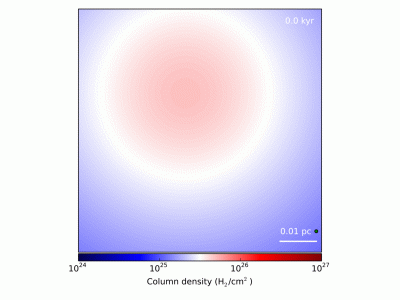Analyse de la dynamique stellaire (rotation) par l’asteroseismologie
Stellar dymanics analysis using asteroseismology.
Pour les détails sur la mission KEPLER, voir le site Kepler-NASA
For details on the KEPLER mission, see the Kepler-NASA website
Study of the surface stellar rotation of solar-like oscillators and of Kepler Objects of Interests (KOIs) observed by the Kepler satellite
-
Solar-like oscillators (Garcia et al. 2014a)
The complete set of results associated to the extraction of the surface rotation of the solar-like oscillators from Garcia et al. (2014a) are downloadable here:
Single stars (divided in 3 different zip files):
- Plots_Garcia_2014_Table1_Part1.zip (143MB)
- Plots_Garcia_2014_Table1_Part2.zip (159MB)
- Plots_Garcia_2014_Table1_Part3.zip (155MB)
Binary stars:  Plots_Garcia2014_Table2.pdf
Plots_Garcia2014_Table2.pdf
Here is the list of stars showing no rotation:  Plots_Garcia2014_Table3.pdf
Plots_Garcia2014_Table3.pdf
The tables of surface rotation periods and the derived activity indexes of the stars for which a rotation was detected can also be downloaded here:
Single stars:  Table_1.txt
Table_1.txt
Binary stars:  Table_2.txt
Table_2.txt
Here is the list of stars showing no rotation:  Table_3.txt
Table_3.txt
These tables are also available through the CDS portal at: "Pulsating solar-like stars in Kepler (Garcia+, 2014)".
-
Solar-like oscillators with ages determined using acoustic individual frequencies
These 15 stars correspond to a subsample of the solar-like oscillators available through the previous link (note that the complete file is still under preparation) and are shown on Fig.9 of Garcia et al. 2014a. The ages of these 15 stars were determined using the their fitted acoustic individual frequencies in the Asteroseismic Modeling Portal (Mathur et al. 2012; Metcalfe et al. 2014). The corresponding plots associated to the extraction of the surface rotation are available here:
-
Kepler Objects of Interest (KOIs)
The complete set of results associated to the extraction of the surface rotation of the KOIs are downloadable here:
 Plots_KOI.pdf (Note that the star KIC 9955598 was already included in the analysis from Garcia et al., 2014a)
Plots_KOI.pdf (Note that the star KIC 9955598 was already included in the analysis from Garcia et al., 2014a)
Within the set of KOI stars, solar-like oscillations were measured for a subset of stars and their seismic ages determined (Silva-Aguirre et al. 2015). The corresponding plots associated to the extraction of the surface rotation will be made available here:
File in preparation
KADACS calibrated time series of the Kepler observations
Two different filtered data are available: at 20 days and at 55 days, which correspond to a cutoff of the transfert function of 40 days and 110 days respectively. These time series were calibrated from the pixel data (Mathur et al., in preparation) following the procedure described in Garcia et al. (2011) and interpolated using the in-painting algorithim (Pires et al., 2015) in order to miminize the aliases from the Kepler observational window (Garcia et al., 2014b).
The corresponding time series will be available to download here. The complete set of files are still in preparation.
Stellar magnetic activity of the solar-like oscillators
Under construction
• Thèmes de recherche du Service d'astrophysique › Data-SAp
• Le Département d'Astrophysique (DAp) // UMR AIM • Department of Astrophysics (DAp) // UMR AIM
• Dynamique des Etoiles, des Exoplanètes et de leur Environnement • Dynamics of Stars, Exoplanets and their Environment





